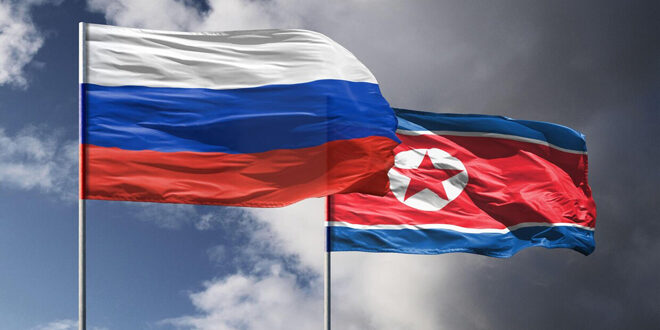
Pyongyang - Saba:
North Korean President Kim Jong-un has issued a decree ratifying the Strategic Partnership Treaty between North Korea and the Russian Federation.
The North Korean Central News Agency (KCNA) reported that the treaty, which was signed on 19 June this year, has been definitively ratified through the decree signed by Kim.
On 9 November, Russian President Vladimir Putin signed a law ratifying the treaty.
According to the treaty, the two sides, taking into account the legislation of the two countries and their international obligations, should continue to maintain and develop comprehensive strategic partnership relations, based on the principles of mutual respect for state sovereignty, territorial integrity, non-interference in internal affairs, equality and other principles of international law on friendly relations and co-operation between states.
In particular, this treaty provides for the immediate provision of military assistance and other forms of co-operation in the event of a military attack on one of the parties, in accordance with Article 51 of the UN Charter. In addition, the parties undertake not to enter into agreements with third countries that are directly directed against the sovereignty and security of the other party.
North Korean President Kim Jong-un has issued a decree ratifying the Strategic Partnership Treaty between North Korea and the Russian Federation.
The North Korean Central News Agency (KCNA) reported that the treaty, which was signed on 19 June this year, has been definitively ratified through the decree signed by Kim.
On 9 November, Russian President Vladimir Putin signed a law ratifying the treaty.
According to the treaty, the two sides, taking into account the legislation of the two countries and their international obligations, should continue to maintain and develop comprehensive strategic partnership relations, based on the principles of mutual respect for state sovereignty, territorial integrity, non-interference in internal affairs, equality and other principles of international law on friendly relations and co-operation between states.
In particular, this treaty provides for the immediate provision of military assistance and other forms of co-operation in the event of a military attack on one of the parties, in accordance with Article 51 of the UN Charter. In addition, the parties undertake not to enter into agreements with third countries that are directly directed against the sovereignty and security of the other party.